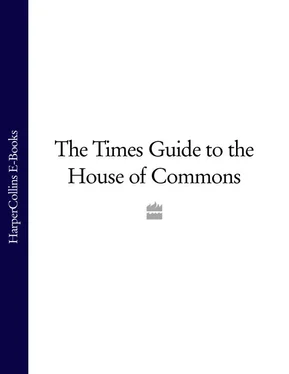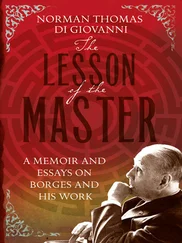The issue became hugely sensitive, with the Conservatives and the Liberal Democrats keen to knock Labour’s record, while the Government was anxious to demonstrate that it was doing everything possible to improve the situation. Highlighting the politicisation of what should be a military matter, a decision to replace the Snatch Land Rover with 200 new vehicles was revealed while Mr Brown was on a trip to Afghanistan. He embarked on the March visit immediately after giving evidence at the Chilcot inquiry in which he delivered a strong defence of his military spending record. He was, however, later forced to make an embarrassing correction to his evidence.
As well as requiring more of the Government, the growing political awareness and appreciation of defence also prompted the politicians to look more closely at how the Ministry of Defence conducted itself. The Defence Select Committee and the National Audit Office produced damning reports on its procurement record, with billions of pounds wasted on delayed projects.
Under Bob Ainsworth, Labour’s final Defence Secretary, the MoD published a Green Paper that set the scene for a long-overdue Strategic Defence Review, although it was left to the Lib-Con coalition to implement. The failure to conduct a review sooner – the last one was in 1998, before the world-changing terrorist attack on September 11, 2001 and the wars in Iraq and Afghanistan – was regarded as another legacy of Labour’s inability to understand the military and, arguably, a failure of commanders to push for it. As a result, many of the long-term programmes to which the MoD was committed, such as two new aircraft carriers, planes to fly off them, and scores of additional fast-jets, were seen as out-dated and no longer suited to equip Britain for the wars of the future with only limited resources available.
Separately, a realisation of cash shortages in MoD coffers to look after wounded personnel and veterans prompted the creation of a number of new military charities on top of the established organisations to raise extra money for serving and former members of the Armed Forces. They moved quickly to capitalise on the sudden, public appreciation of the military, with The Sun newspaper backing a charity called “Help for Heroes” that ran a hugely successful campaign selling blue and red wrist bands as well as a host of other money-raising events that further boosted the profile of the military.
Joanna Lumley added an unlikely dimension to the relationship between MPs and the military when she fronted a bid to secure Gurkha veterans with at least four years’ service in the British Army the right to resettle in Britain.
It was not just the Armed Forces that were in focus. The Times ran a campaign in 2007 to urge the Government to help hundreds of Iraqi interpreters who were facing death at the hands of militiamen in Iraq because of their association with the British military. In response, Mr Brown created a scheme to relocate the interpreters and their families in Britain or give them a cash payment.
Another unfortunate legacy was a growing pile of lawsuits against the Ministry of Defence ranging from allegations of torture and abuse by Iraqi detainees to claims of negligence by the families of soldiers who died in Snatch Land Rovers. This costly process will take a long time to resolve.
The increased awareness of the military among the public and politicians during the last Parliament failed to translate into a heightened interest in the general election. Military insiders had hoped that a debate would take place about what sort of country Britain aspires to be: does the nation want to maintain its costly but influential place on the top table as a nuclear power alongside the United States or is it happy to downgrade to a less-significant player?
This fundamental question was left to be answered in the Strategic Defence Review. Aligned to this will be the extent of expected cuts in the defence budget, which will affect the scope of future operations, from the size of the Armed Forces to the weapons at their disposal. Unlike the first half of the previous century, the number of MPs with military experience remained low, although the new Parliament has the highest tally in at least the past two decades – 19 Conservative MPs and one from Labour, according to Byron Criddle, of the University of Aberdeen. Despite a shortage of hands-on experience, MPs look set to retain their rekindled appreciation of the military, at least for as long as British troops are deployed in Afghanistan.
Armed Forces Day, created by Mr Brown in June 2007, created an annual programme of events to celebrate all three services nationwide. The real test of Britain’s relationship with its military, however, will occur in the decades ahead.
Hail and a fond farewell to the dearly departed
Ann Treneman
Sketch writer
So farewell, then, Manure Parliament. A solemn wave to those who are gone but not, as yet, forgotten. All in all, 147 MPs stood down before the election, some with honour and others not, exhausted, disillusioned, angry and shamed. On the night, many more joined them. Surely it is symbolic that, on a night when the overall swing to the Conservatives was 5 per cent, Mr Manure himself, David Heathcote-Amory, lost his seat in Wells, Somerset. Mr Manure, who had to pay back almost £30,000 in exes and submitted bills for dozens of sacks of manure for his garden, said: “Expenses damaged all incumbents and perhaps me particularly.” I especially like that “perhaps”.
His was not the only whiffy result. Many were surprised that Jacqui Smith, the first woman home secretary, stood for re-election in Redditch. Ms Smith, notorious for her claim for two porn videos for her husband, not to mention 88p for a bathplug, had fought a bizarre, almost guerrilla, campaign in which she did her best to avoid the press. Her best-known booster was Tony Blair, who popped in for tea one day. I am not sure if that helped or hindered: she lost with a 9.21 per cent swing to the Tories. She can now spend more time with her (second) home.
It was a bad night for former home secretaries. Charles Clarke lost his Norwich South seat by 310 votes to the Lib Dems. I shall miss Mr Clarke, a big beast of the Westminster village in every way, who fought a long and wonderfully personal campaign against Gordon Brown as Prime Minister. How sad for him that, in the end, he went before Gordo. Another Labour defeat was the minister Jim Knight, more talented than most, in the marginal Dorset South. I was not surprised to see that he was promptly made a peer.
I find it hard to imagine politics without Lembit Öpik, the celebrity-crazed Lib Dem just as well known for dating a Cheeky Girl whose big hit was called The Cheeky Song (Touch My Bum) and for believing that Earth could be destroyed by a meteorite. In the end, his career was wrecked by something much more mundane: a 13 per cent swing to the Tories. Hours after losing, Lembit popped up on the TV quiz show Have I Got News for You urging his fellow contestants to hurry up: “Can we get on with it? I’ve actually got an appointment at the JobCentre in about half an hour.” Paul Merton responded: “They phoned earlier, they cancelled.” Lembit loved this. He is a glutton for publicity.
Another shocker was Peter Robinson, Northern Ireland’s First Minister and DUP leader, who lost his East Belfast seat. His defeat came after damaging revelations about himself and his wife, Iris, nicknamed the Swish Family Robinson after reports that they claimed more than £500,000 a year in salary and expenses. Iris, who always used to do a fine line in morality when she spoke in the Commons, had already stood down after it became known that she had obtained £50,000 for her teenage lover to fund his business. It is a sad tale but not without its moral.
Читать дальше












